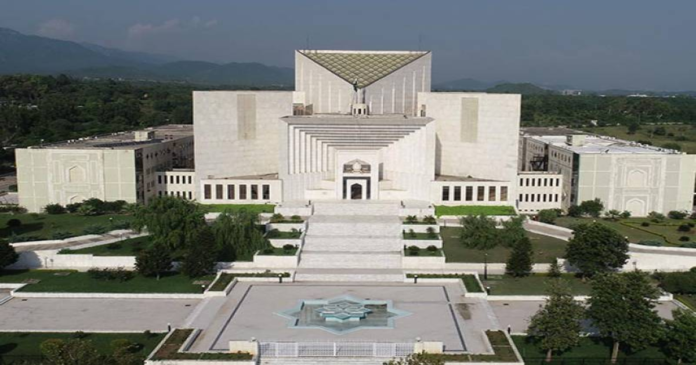The hearing on constitutional arguments opposing the government’s choice to prosecute civilians in military courts for their alleged involvement in the violent protests of May 9 was resumed by the Supreme Court on Friday.
SC hearing against civilians trial: The case is being heard by a larger, seven-member bench presided over by Chief Justice of Pakistan Umar Atta Bandial. The judges who make up the bench are Justice Ejazul Ahsan, Justice Mansoor Ali Shah, Justice Muneeb Akhtar, Justice Yahya Afridi, Justice Mazahir Ali Naqvi, and Justice Ayesha Malik.
After PTI members vandalised army facilities in response to the detention of their party chairman, the PDM administration chose to trial civilians in military courts.
The PTI chairman, former chief justice Jawwad S. Khawaja, senior attorney Aitzaz Ahsan, and Executive Director of Pakistan Institute of Labour Education and Research (Piler), Karamat Ali, have petitioned the supreme court to deem the prosecution of civilians in military courts to be unconstitutional.
The appeals were heard on Thursday by a larger bench of nine members. But after objections from Justices Tariq Masood and Qazi Faez Isa, the bench was dismissed.
The objection from Justice Isa was that he “did not consider the bench a bench until the Supreme Court first issue a verdict on the Supreme Court Practise and Procedure Act, 2023.” Justice Masood also supported him.
As a result of the two senior justices raising concerns about the bench, CJP Bandial stated that the law’s stay order might be lifted.
The CJP then assembled a seven-person bench to begin hearing the arguments.
CJP Bandial stated that the case would be “quickly” concluded by the court and he requested full information from the government regarding the arrests that were made following the events of May 9.
Latif Khosa begged for a stay, but the CJP refused, saying, “It is not right to issue stay orders on everything.”
Khosa had previously been instructed to notify the court about the laws governing punishments and the grounds for the transfer of civilian cases from anti-terrorism tribunals to military courts.
The Pakistan Army Act, according to Khosa, makes no mention of civilians. In response, Justice Shah stated that he thought civil laws had harsher penalties than military ones.
Private discussions were taped, according to the CJP, who also claimed that privacy was violated.
The “military trials of the civilians are underway,” the court was also informed.
Faisal Siddiqui, the attorney, will present the case today.

